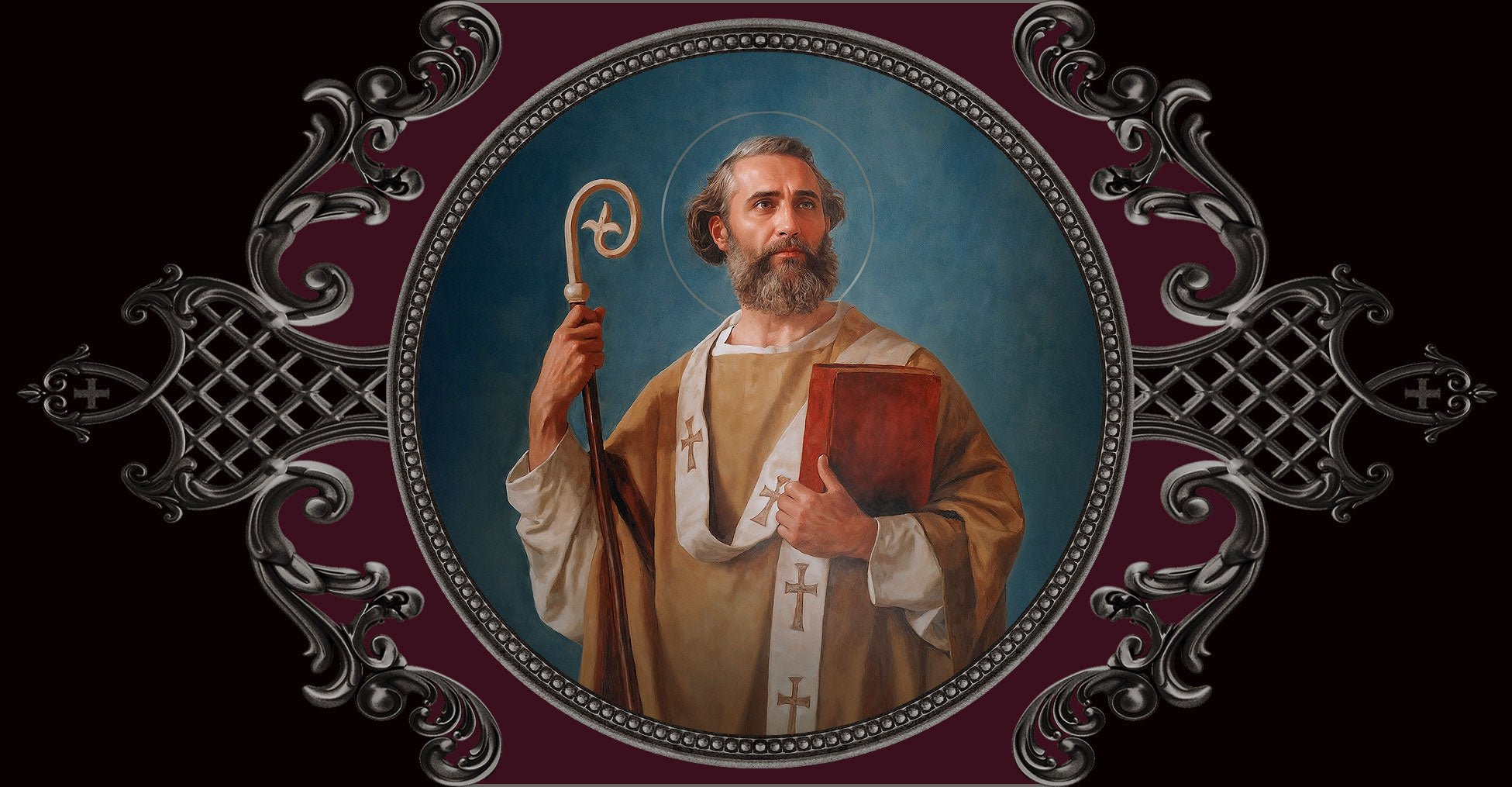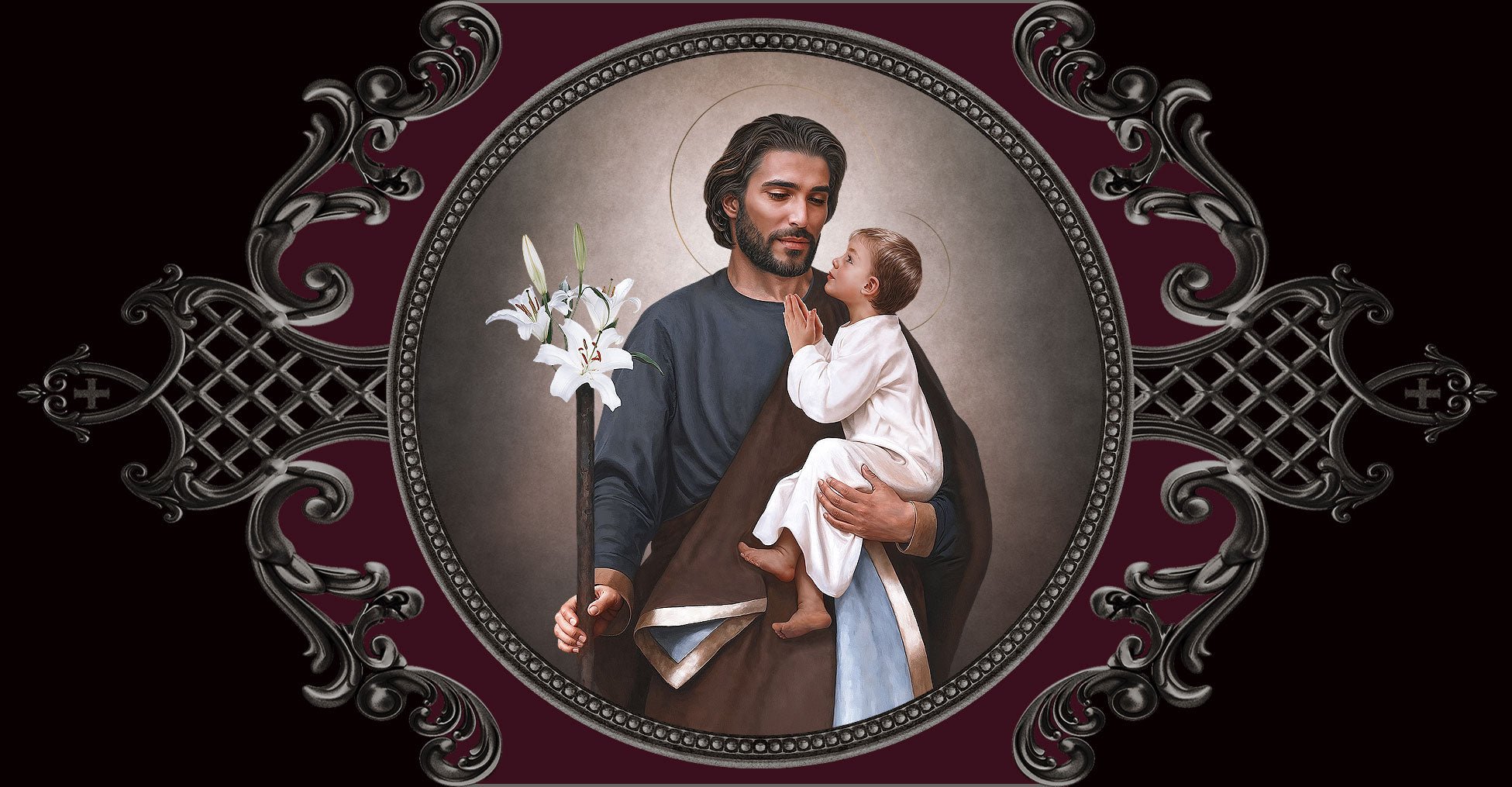
March 18 + Saint Cyril of Jerusalem
Cyril was a bishop and Doctor of the Church whose writings are still regarded as masterful expressions of Christian faith. He is also remembered for his exhaustive Biblical knowledge, and his endurance in the face of misunderstanding and opposition. Eastern Catholics and Eastern Orthodox Christians also remember him on May 7 – the date of a miraculous apparition said to have occurred soon after his consecration as a bishop.
Cyril was born in Jerusalem around the year 315, shortly after the legalization of Christianity throughout the Roman Empire. Although legalization put a stop to many of the persecutions that threatened the Church for two centuries, it indirectly gave rise to a number of internal controversies – both in regard to theology and the jurisdiction of bishops – in which Cyril would find himself involved.
Cyril received an excellent education in classical Greek literature as well as the Scriptures. He was ordained to the priesthood by Bishop Maximus of Jerusalem and succeeded him as bishop in 348. During his early years as a bishop, he delivered a series of lectures to new initiates of the Catholic Church. Twenty-four of the lectures have survived and are studied today.
After Cyril became the Bishop of Jerusalem, a large cross-shaped light appeared for several hours in the sky over the city – an event that many interpreted as a sign of the Church's triumph over heresy. It was also understood as a sign of the suffering the new bishop would undergo in leading his flock.
Unlike many other Eastern bishops and priests of the fourth century, Cyril did not allow his classical learning to lead him away from believing in the full humanity and divinity of Christ. Unfortunately, the man who consecrated Cyril as a bishop, Archbishop Acacius of Caesarea, was an ally of the Arians – who claimed that Jesus was a creature and not God. Because of his connection to that archbishop, Cyril himself was unjustly suspected of heresy by many of his brother bishops.
Cyril found himself at odds with Archbishop Acacius. These disputes led to Cyril being exiled from Jerusalem three times in the course of 20 years. He was condemned, driven from Jerusalem, and later vindicated. He finally returned to find Jerusalem torn with heresy, schism and strife, and wracked with crime. Even Saint Gregory of Nyssa, who was sent to help, left in despair.
They both went to the Council of Constantinople where the amended form of the Nicene Creed was promulgated in 381. Cyril accepted the word consubstantial — that is, Christ is of the same substance or nature as the Father.
Cyril died in 387 and was named a Doctor of the Church by Pope Leo XIII in 1883.
Those who imagine that the lives of saints are simple and placid, untouched by the vulgar breath of controversy, are rudely shocked by history. Yet, it should be no surprise that saints, indeed all Christians, will experience the same difficulties as their Master. The definition of truth is an endless, complex pursuit, and good men and women have suffered the pain of both controversy and error. Intellectual, emotional, and political roadblocks may slow up people like Cyril for a time. But their lives taken as a whole are monuments to honesty and courage.



Leave a comment
This site is protected by hCaptcha and the hCaptcha Privacy Policy and Terms of Service apply.